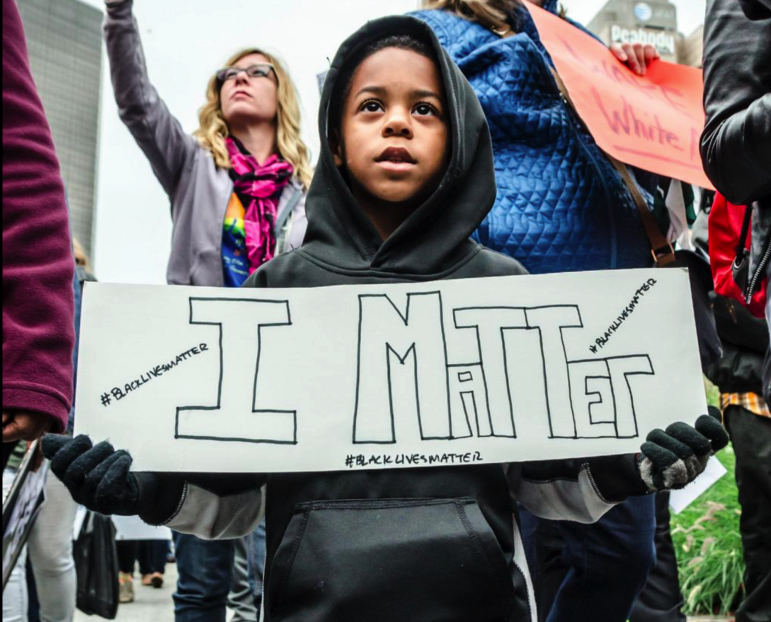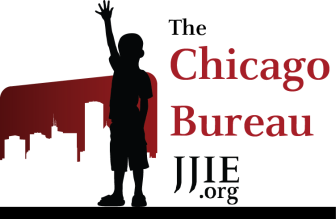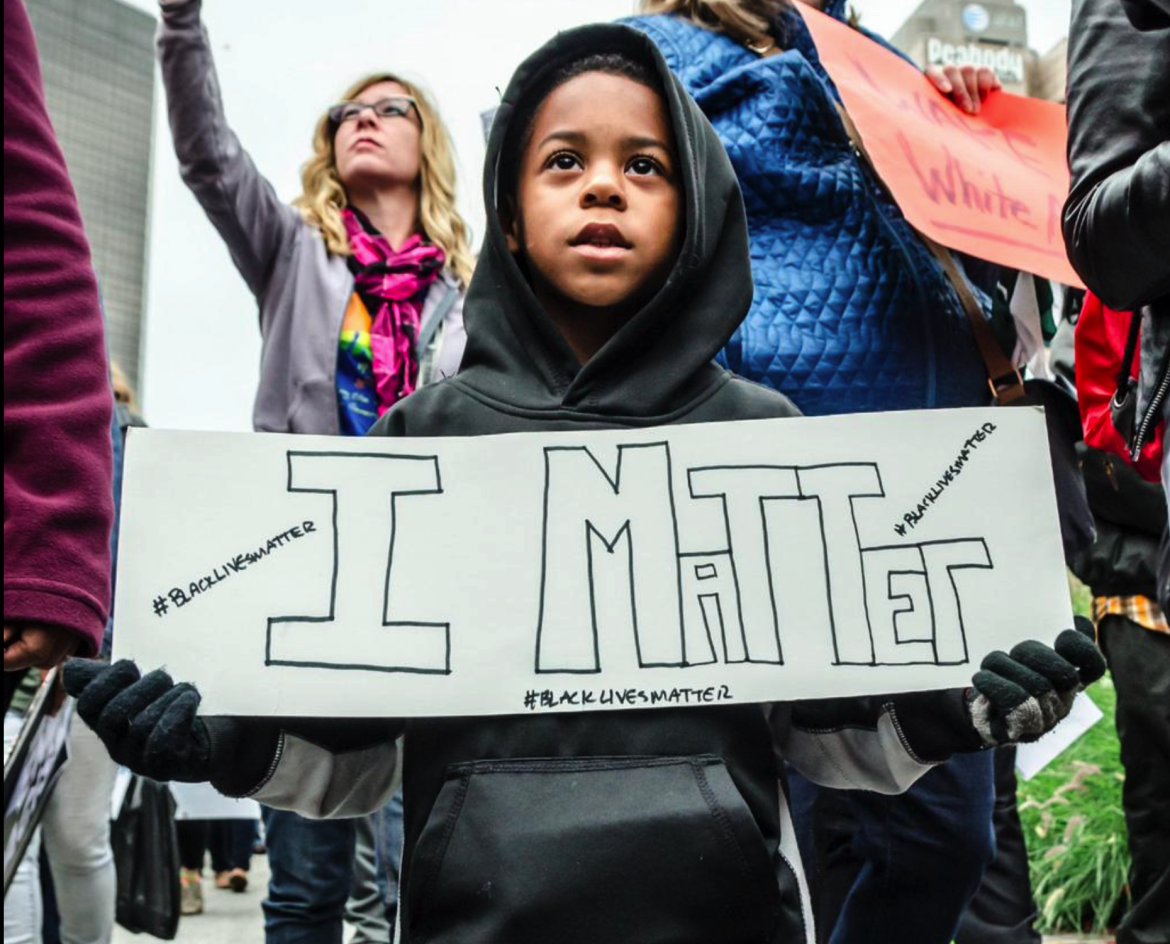
From The Chicago Bureau:
Page May had only one word for it: torture. That was how she and others with the new activist group We Charge Genocide are classifying police brutality in Chicago in a report compiled for the United Nations Committee Against Torture, the findings of which were presented this week before a crowded room of activists at the Jane Adams Hull House.
Assembled through “dozens upon dozens” of eyewitness testimony and a month of meticulous database scraping, the report had chilling conclusions regarding police brutality on the South Side. Racial inequality and a systemic lack of system oversight took center-stage.

Page May, one of the delegates attending the UN to bring what she says is ample evidence of police brutality and torture in Chicago.
- Blacks account for 32.3% of Chicago’s overall population but 75% of police shooting victims from 2009 to 2013.
- 92% of Taser uses involved a Black or Latino target, including 49 youth under the age of 16 (with some as young as 8 years old).
- In 2011, Black minors accounted for 77% of youth arrests of youth in 2011 and 79% in 2012. Latino youth accounted for most of the rest, 18% in 2011, 17% in 2012.
- 0.48% of brutality complaints against the Chicago Police Department are sustained. The national average is 8%.
- Between 2002 and 2004, Chicago residents filed 10,149 complaints against the Chicago Police Department. Nineteen cases (0.18%) resulted in what they defined as a “meaningful penalty.
We Charge Genocide asserts that these statistics constitute a violation of the United Nations Convention against Torture, which Congress ratified in 1994. Specifically, it bans the use of torture in all circumstances, calls for the federal government to educate law enforcement on the prohibition of torture, engage in systemic review of its interrogation practices, allow civilians to lodge charges of torture without fear of retribution and to ensure that all such cases are investigated impartially.
Roadblocks in compiling the report underscored the scope of the problem itself. Not only are complaints not prosecuted, but often they are not lodged to begin with. A culture of fear silences victims, the group said.
 “Personal stories are a little bit more difficult because people are afraid of getting retaliation for speaking about the violence they're experiencing so that’s a little harder,” Monica Trinidad, one of the delegates who will fly to Geneva in November, said. “But I think the more people that come out and actually share their experiences the easier it will be for more and more people to come out and we're seeing that in large alarming rates.”
“Personal stories are a little bit more difficult because people are afraid of getting retaliation for speaking about the violence they're experiencing so that’s a little harder,” Monica Trinidad, one of the delegates who will fly to Geneva in November, said. “But I think the more people that come out and actually share their experiences the easier it will be for more and more people to come out and we're seeing that in large alarming rates.”
Trinidad, May and six other delegates ages 19 to 30 will present the report in November in Geneva, when it will join the one compiled by the United States government and other “shadow reports,” testimonies secured by a variety of NGOs and non-profits. We Charge Genocide will only have a two-minute window to make their case, but they expressed confidence it would be enough.
“I do not think the UN will be hard to convince,” May said. “I think they are going to be very sympathetic to what we're saying and understanding. The U.S. is exceptional in its willful ignorance of the scope of the problem.”
May says We Charge Genocide hopes the UN will pressure the United States Department of Justice to investigate the Chicago Police Department’s treatment of minority youth. Most notably, they want reparations for victims of police brutality and their families.
“If we look at other organizations, we know that it does make a difference, right,” she said. “We know from the original 1951 petition that didn’t even get to the UN ... and we also know from folks like Joey Mogul and others organizing around the John Burge torture trial.”
That original petition would be the organization’s namesake, the “We Charge Genocide: The Crime of Government Against the Negro People,” petition, which inspired international outcry after the Civil Rights Congress distributed it around Europe. John Burge was a Chicago Police Department commander who tortured 200 criminal suspects from 1971 to 1992. After no criminal action was taken, activist lawyers brought his case before the United Nations in 2006. The UN urged action and two years later, Burge was arrested and later convicted on perjury and obstruction of justice charges.
But even if the United Nations fails to mention Chicago in its report, the media attention their trip brings might constitute a moral victory.
“Just by us going on an international level and putting a spotlight on the U.S. while it's under review for being in direct violation of the articles of the convention against torture,” Trinidad said. “I think just that international spotlight is enough to bring back to Chicago with us and let everyone know that the U.S. is in all these violations.”
It is a spotlight already being cast. We Charge Genocide was only founded in June, but they’ve already amassed a broad support base. They define themselves as a grassroots, inter-generational effort to center the voices and experiences of the young people most targeted by police violence in Chicago,” which Trinidad said had great appeal because of its inclusion of youth. Support surged in the aftermath of the Michael Brown shooting in Ferguson, Mo., and the death of Dominique “Damo” Franklin, who was immobilized with a stun gun on Chicago’s West North Avenue in May.
In September, they began an online fundraising campaign to finance their UN delegation. Along with contributions from a supportive coalition in Illinois, donations and heartfelt messages came in from Seattle to South Carolina. May boasted of contributions from “around the world.” They reached their $15,000 goal in just two weeks, and eventually secured $20,580, enough to send two more delegates.
Police spokesman Martin Maloney released a statement Oct. 22: “Community policing and fostering stronger relationships with the communities we all serve is the foundation of our policing philosophy. Over the past three years CPD has led a return to community policing to build relationships between officers and residents, and we have instituted new training, mandatory for all officers, focused on how they are to interact with residents.”
But We Charge Genocide has higher aspirations.
When asked if there was one measure she wanted to see enacted after the UN report, Trindad responded quickly: “Complete transparency and accountability of the Chicago Police Department.”
This story produced by the Chicago Bureau.

Pingback: Prison Culture » Damo, We Speak Your Name: Resisting Police Violence in Chicago